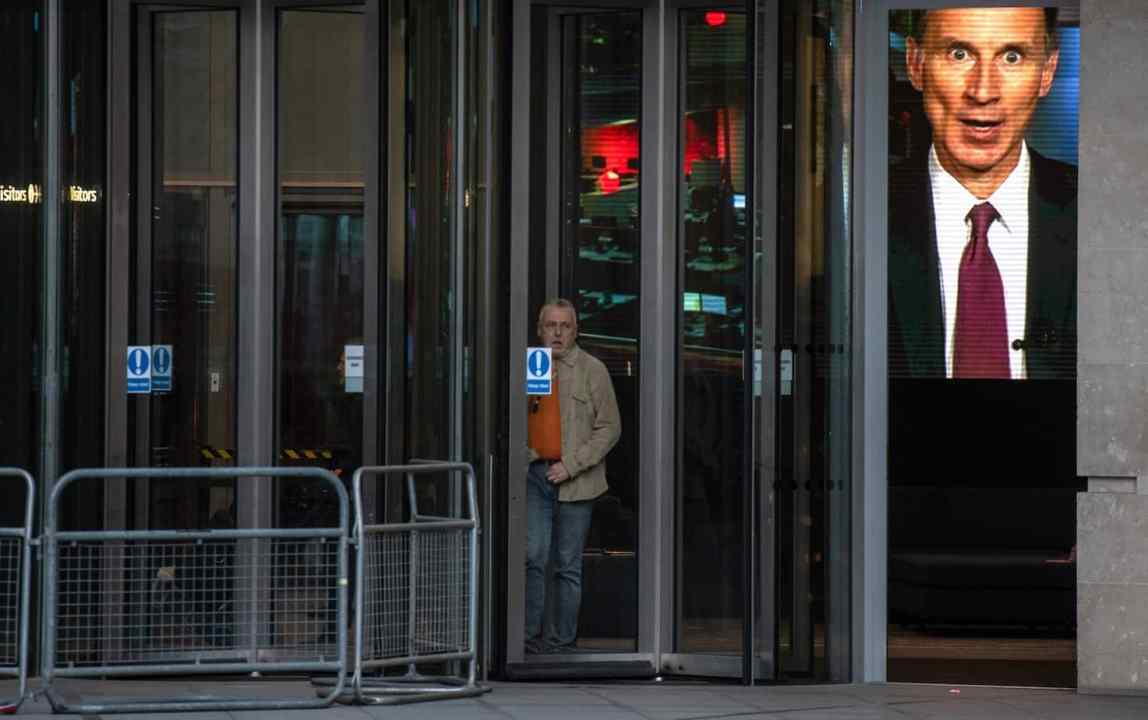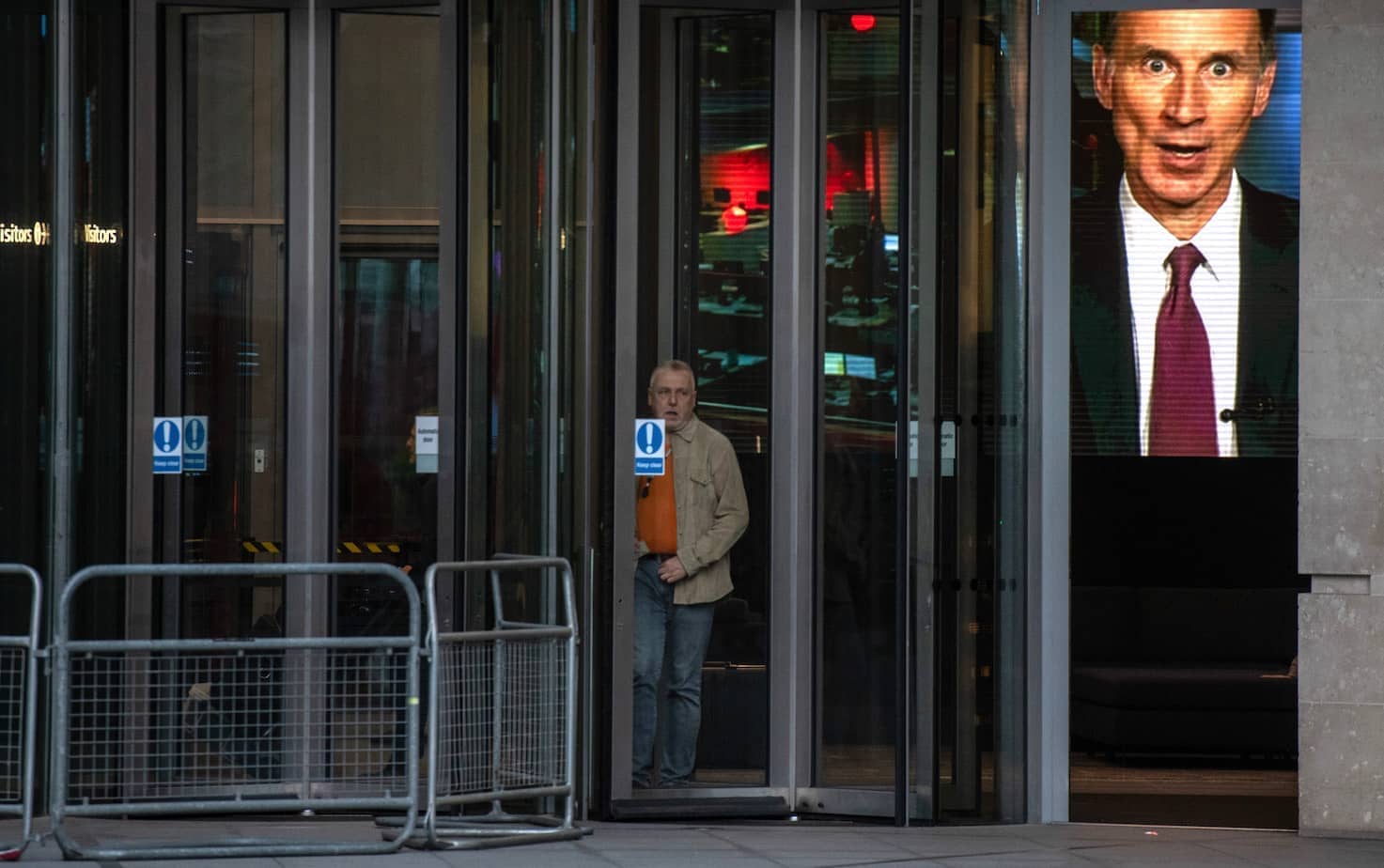I don’t know who will become the next prime minister, and I’m not going to make a guess here. But I do make this prediction: the next leader is going to face a major internal Tory fight over immigration. That prediction is based on the thing that drove Liz Truss from office: the urgent need to reassure gilt markets that Britain has a growth plan that will help repair the public finances.
That need has not gone away. It will define the government whoever leads it. That government seems very, very likely to include Jeremy Hunt as Chancellor since a new PM taking office next Friday and removing him days before his fiscal statement on 31 October would risk panicking the markets again. And we know how that ends.
There’s a decent argument that, in the short term, Hunt matters more than whichever poor soul gets saddled with the premiership next. He’s the man whose plans on tax (rises) and spending (cuts) will shape politics over the next few years. Probably the most important thing Hunt has to do in his fiscal plans is persuade the Office for Budget Responsibility that there is a decent hope of the UK national debt falling (as a share of GDP) over the next five years. Such a forecast from the independent OBR is the sort of thing that might get the bond vigilantes off Britain’s case and allow a return to some sort of normal borrowing conditions for HMG.
Who could bridge the gap between pro-growth liberalism on immigration and the Tory right’s demand for immigration curbs?
But how to deliver that? What might persuade the OBR that the UK is indeed on course back to fiscal sustainability? Cancelling the tax cuts was the first step. Next is the spending squeeze that will grab all the headlines on October 31st. But there’s another ingredient needed: growth. According to the OBR in July, the UK’s trend rate of growth is down to 1.4 per cent.
Truss was quite right to identify growth as a priority. She was wrong about how to deliver it: her supply-side plans were all worthy enough but failed to address the biggest issue facing the UK economy, which is access to labour. We just don’t have enough workers right now: lack of labour was a big part of that OBR downgrade in trend growth. (It had previously put the trend rate at 2.2 per cent)
Business agrees. The CBI recently found that three-quarters of UK businesses are currently reporting labour shortages. In the last fortnight, I’ve spoken to the CEOs of several of the UK’s biggest companies. All named labour supply problems as their biggest concern about the UK; one told me he’s already started the process of taking some of his firm’s work out of Britain to countries where he can hire the people he needs to do that work. Immigration boosts GDP growth. It gives UK employers access to a larger pool of workers, allowing them to hire more people to do more work.
There are other ways to increase the labour supply, of course. Getting more people off the ‘economically inactive’ list and back to work should be a priority. But that stuff takes time. Immigration is a quicker, simpler way to boost growth. So my semi-informed guess is that the Hunt plan to get debt falling will mean some relaxation of Britain’s immigration rules. These rules were already, quietly, fairly liberal but there is more that can be done to fill vacancies for UK plc.
Very broadly speaking, the OBR methodology suggests that every 50,000 increase in net migration to the UK increases the trend growth rate of the economy by 0.1 per cent. So if Chancellor Hunt wants to add 0.5 per cent to trend growth, the UK needs to admit an extra 250,000 migrants a year, net. Assuming that the new PM does not want to take a Truss-level risk by taking office and binning Huntonomics, then, that next PM is likely to start their term promising more immigration.
As someone who is very relaxed about immigration, I’m not worried about this. But then, I’m not a Conservative MP. Quite a lot of them would be worried about an explicit policy of increasing immigration. They worry that this would antagonise their voters (or rather, former voters) still further. This is the context for Suella Braverman’s resignation as Home Secretary. Braverman aspires to lead the bit of the right that gets unhappy about immigration, a non-trivial group of MPs. While I don’t expect her to become PM, I do expect to have a certain following among that group under the next PM.
Trying to placate Braverman and the immigration-anxious right of the Conservative party while also running the liberal immigration policy that’s needed to fuel growth and reassure the gilt markets will be a formidable balancing act for whoever ends up in charge on 28 October. There will be many such dreadful political challenges for the next Tory leader – getting those spending cuts through, for instance – but I’m betting on immigration to get a lot more attention after 31 October. Who could bridge the gap between pro-growth liberalism on immigration and the Tory right’s demand for immigration curbs? I can think of only one prominent Conservative who might be able to combine such liberalism with an ability to charm the right. His name is Boris Johnson.








Comments